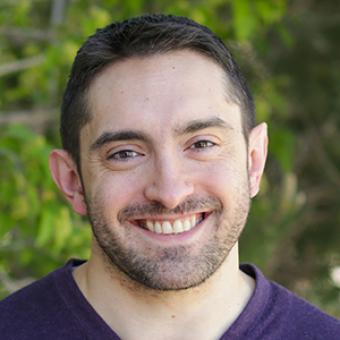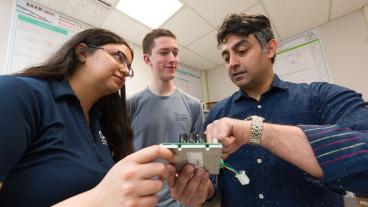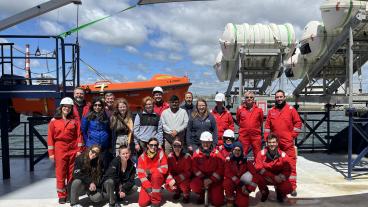Stephen Pankavich named department head for Applied Mathematics and Statistics

Stephen Pankavich has been named department head for Applied Mathematics and Statistics at Colorado School of Mines.
A member of the Mines faculty since 2012, Pankavich is a professor of applied mathematics and previously served as the department’s director of graduate studies from 2017 to 2019. His new appointment began Aug. 5.
The Applied Mathematics and Statistics Department at Mines currently offers Bachelor of Science, Master of Science and Doctor of Philosophy degrees, along with a full research portfolio that includes applied mathematics and wave phenomena, computational and global seismology, computational mathematics and analysis, mathematical biology and biostatistics, optimization and deep learning and statistics and data science.
At the undergraduate level, students can choose from three B.S. options: computational and applied mathematics, statistics, and data science. At the graduate level, M.S. and PhD degrees are offered in Computational and Applied Mathematics and Statistics, as well as, a combined BS-MS program.
“I’m excited to take on this new leadership role in the department,” Pankavich said. “Pairing high research standards with a strong student experience is central to the future of AMS – a lot of the ideas that we have are really about improving the research-oriented goals of the department and making sure that we’re still doing all that we can for our students going forward.”
Among Pankavich’s goals for the department are continuing to modernize the curriculum and growing graduate programs so AMS can offer more options for working professionals in data science and the tech sector. That includes a proposed data science PhD program, which he said could be attractive to working professionals in the Denver area who are looking to boost their proficiency at their current workplace. The department has data science offerings at the masters level, but a PhD program would further the department’s reach.
“Many people are functioning as data scientists everywhere right now without necessarily possessing the needed background,” he said. “We can give them a foundation in statistical methods, machine learning techniques, things like that, which they can apply in their current jobs.”
Pankavich’s research focuses on partial differential equations and kinetic theory, as well as mathematical biology, computational biophysics and multiscale analysis. He holds a PhD, master’s degree and bachelor’s degree from Carnegie Mellon University. Prior to joining Mines, he served on the faculty at the University of Texas at Arlington and the United States Naval Academy.
“We’re really excited about some of the junior faculty we’ve hired recently,” he said. “I’d like to focus on continuing the trend of hiring excellent junior faculty to lead us into our new R1 universe. We want to have the strongest applied math department we can under that designation.”




